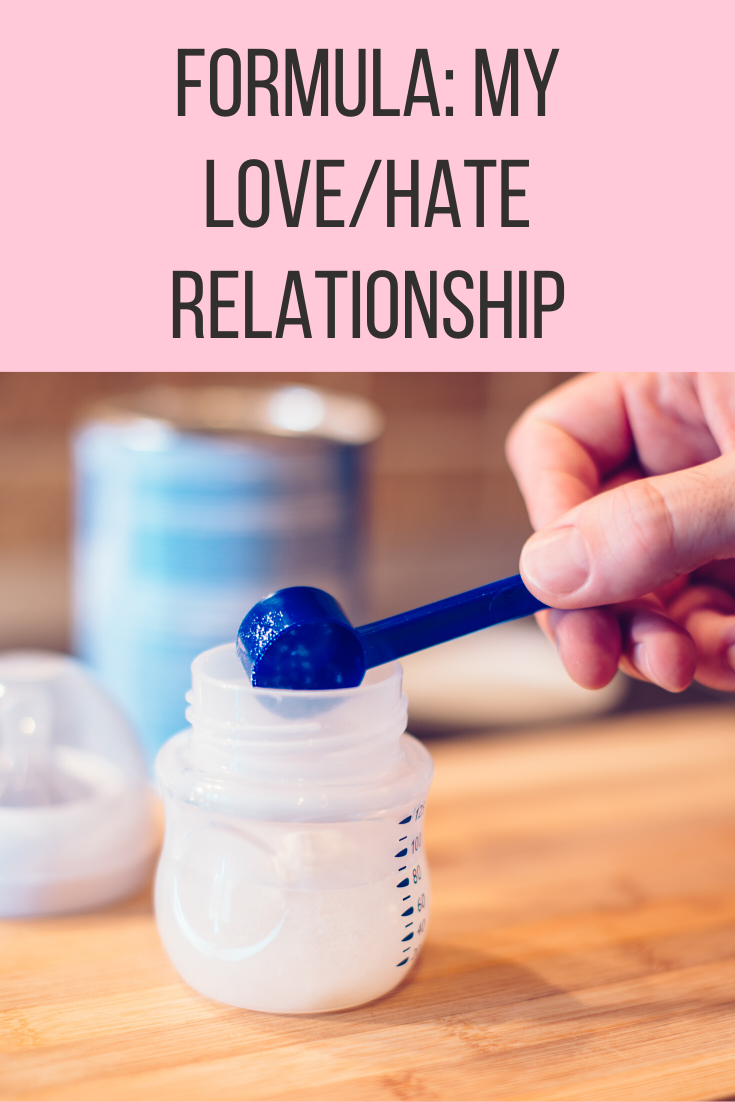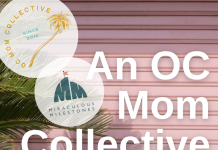
I have a love-hate relationship with formula. This month my daughter turned 1. It was an especially reflective and emotional moment in motherhood for me. As cliche as it sounds, I simply couldn’t comprehend how quickly a year went by. How could this little being grow so rapidly? And with that question, parenthood really sunk in.
For some, the 1-year-old milestone is a benchmark for many things: certain vaccinations, different car seat, bottle or breast weaning, the introduction of cow’s milk. It was the cow’s milk that really threw me. No more formula feedings? I just couldn’t believe it.
You see, we were a formula family.
Not by choice but for inexplicable reasons, my body just didn’t produce enough milk to exclusively breastfeed. So my daughter’s first meal was formula-based, as well as her next, and so on, so forth for the next 12 months. After 4 months of round-the clock-pumping, acupuncture, lactation consultants, herbal supplements, and even prescription drugs, I threw in the towel and accepted what physically was beyond my control: this baby was a formula baby.
Formula, like many things, was both a blessing and a curse.
Not being able to breastfeed was devastating — something I internalized as a badge of personal failure. I really beat myself up emotionally those first few months. There were endless tears of disappointment and embarrassment. But I watched with awe and curiosity as my daughter grew and flourished from a tiny infant into an incredibly strong, healthy and happy toddler.
I quickly saw how my “sad mommy” persona was a disservice to my daughter. Instead, I learned to rebound and accept this as one of life’s many curveball lessons. My “failure” presented an opportunity, at the very inception of motherhood no less, to provide a positive example to my daughter. Some might even call it lucky. It taught me adaptability, humility, and empathy. I was a better mother and person for having gone through it.
Formula reminded me, despite the morass of feeding tubes, syringes, and nipple shields, that a certain baby girl loved her mommy no matter what.
Formula was positive in other respects. The most obvious blessing was that anyone could feed the baby. As recovery was so physically tolling during those first few postpartum weeks (okay, months), 2 A.M. feedings were quickly assigned to my husband and whichever grandmother was on duty that night (bless their hearts). I saw how formula allowed them to bond with the baby on a very deep level immediately. Formula probably contributed to her sleeping through the night at a very early age. And formula also offered me what seemed like a silent peace offering of freedom and mobility from the house.
Formula was also a curse.
I felt entirely dependent on a man-made powder and not my body to feed my daughter. Unable to whip out a breast whenever she cried, I instead had to frantically mix carefully measured scoops of powder and shake “baby cocktail” concoctions violently to satisfy her ravenous hunger. I was often embarrassed and shamed when making bottles in front of other moms (especially breastfeeding moms), sensing their (nonexistent) disapproval and judgment.
With time though I learned that good moms, the ones you want to surround yourselves with, don’t judge because they know just how hard this whole motherhood thing is. The other downside to formula, which we won’t get into, is that it is remarkably expensive.
A part of me is genuinely sad to see formula leave our lives. So much was emotionally intertwined. Bitterness…shame…appreciation…and finally,…complete gratitude. For me, life without formula really signals the end of babydom and the start of toddlerdom. A start of a whole different journey. Some might say that’s cause for a celebratory toast with a baby cocktail.














Love this post Mia! Those early lessons that teach us to be flexible moms can be so tough to handle.
Comments are closed.